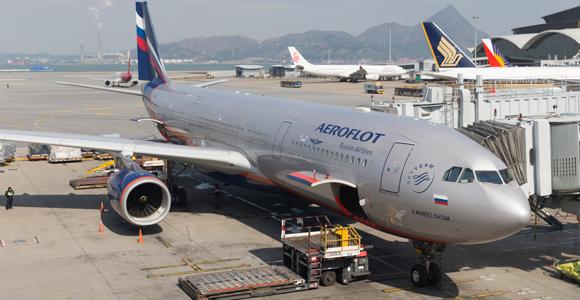New Russian Regulations Could Allow Hiring of Less Capable Pilots


Earlier this year, the Russian government passed a law allowing domestic airlines to hire foreign pilots. Air carriers have jumped at the opportunity to hire well-trained foreign pilots, much to the dismay of domestic professional associations.
A new law in Russia that allows domestic airlines to hire foreign pilots has stirred controversy between airlines and labor unions.
In April 2014, President Vladimir Putin signed a law that allows Russian airlines to hire collectively 200 foreign pilots per year over a 5-year period. UFS Investment Company analyst Anna Milostnova told Russia Beyond the Headlines, “Russian airlines have been lobbying for allowing foreign pilots onto the domestic market for about three years.” Milostnova noted that Russia’s largest carriers, Aeroflot and Transaero, particularly supported the law.
Indeed, Aeroflot and Transaero Airlines have already begun to take advantage of the new law. Aeroflot plans to hire 80 foreigners, while Transaero will hire 67. Smaller carriers will also bring on foreign pilots, with Siberian airline UTair Aviation hiring 14 pilots, and KogalymAvia and VIM Airlines hiring 7 people each.
The decision to hire foreign pilots follows rapid growth in the Russian aviation industry, which has resulted in a shortage of pilots qualified to serve as captains. Some estimate that Russia was short of about 1,000 pilots and see the new law as a solution to the problem.
“Russia did not and does not have a shortage of pilots in general,” Milostnova explained. “However, airlines do not seem to be prepared to spend money on retraining pilots to qualify as captains.”
Aeroflot has invested money in the past to train Russian pilots. In 2011, it opened a flight school for pilots and spent approximately $14 million each year on training efforts. Despite the cost, the flight school has not been very effective. As such, airlines see hiring foreign pilots as a faster and cheaper way to fill the gap.
Professional pilot associations in Russia have harshly criticized the law and current approach to solving the pilot shortage. Villy Vechirko, the vice president of Russia’s Cockpit Personnel Association (CPA), told The Moscow Times that there are currently 500 Russian pilots without jobs. “The law saves money for the airlines. Instead of having to invest in training local personnel, they will just hire foreigners,” Vechirko said.
The law was designed to facilitate hiring pilots from former Commonwealth of Independent States (CIS) countries that could benefit from a higher salary. The professional community has adopted the phrase “guest workers in the sky” to criticize the law, using the word “gastarbeiter,” which has negative connotations and usually denotes workers from former Soviet countries.
According to representatives from pilot labor unions, the possible influx of pilots from these countries poses a threat to security. Igor Obodkov, an aide to the president of the Sheremetyevo Trade Union of Flying Personnel, told Russia Beyond the Headlines, “Recruitment of foreigners will affect safety of flights,” because second-rate pilots would be the only pilots interested in moving to Russia for work.
These fears of an influx of Central Asian pilots appears to be unwarranted, given that most of the new pilots hired have come from Western Europe. Russian airlines’ decision to hire Western pilots comes as a surprise in the midst of sanctions, which have already had an impact on civil aviation in Russia. Whether or not the escalation of sanctions will disrupt the process of hiring foreign pilots remains to be seen.
[Photo: iStock]























Not sure how you derive the conclusion contained in the title. Seems a non-sequitar.